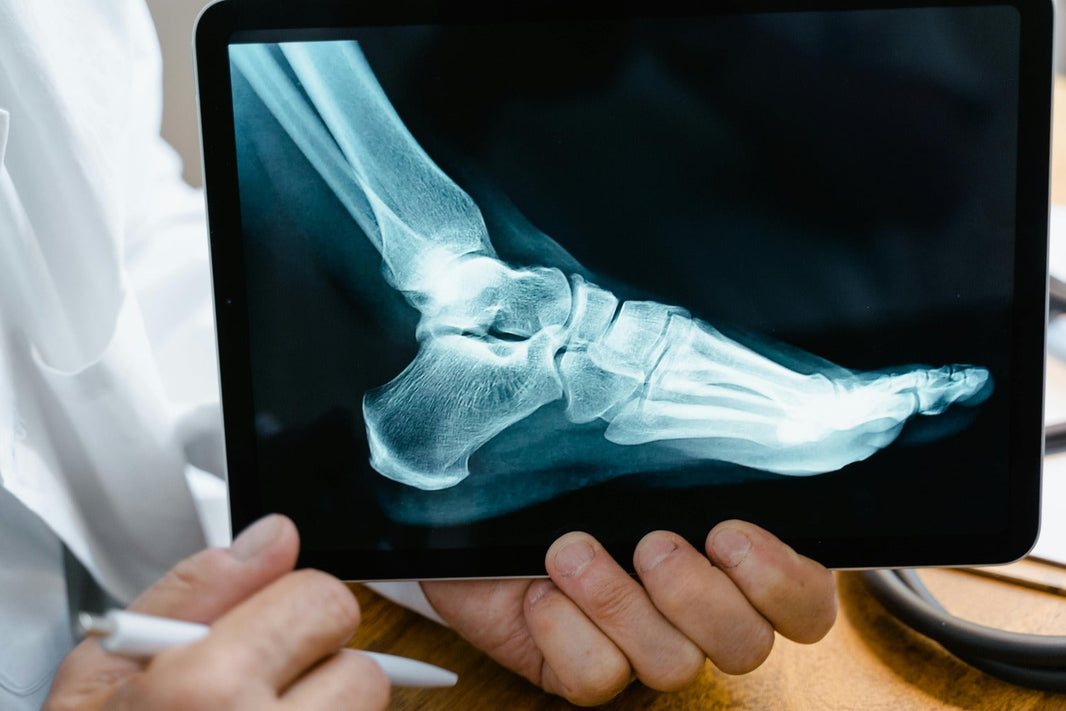When it comes to maintaining the health and function of your rotator cuff tendons, hydration and hyaluronic acid (HA) might not immediately come to mind. However, these two factors play critical roles in joint and tendon health especially for those dealing with shoulder injuries or looking to prevent them. Let’s dive into the science behind hydration and hyaluronic acid and how they contribute to the long-term resilience of your rotator cuff.
Understanding the Rotator Cuff
The rotator cuff is a group of muscles and their associated tendons that stabilize and help movement in the shoulder joint. These tendons are under constant stress especially in individuals who engage in repetitive overhead motions, heavy lifting or sports like swimming and tennis. Overuse, aging, or trauma can lead to rotator cuff injuries such as tendinitis, tears, or impingement syndromes. Maintaining the health of these tendons is essential for pain-free movement and overall shoulder function.
The Role of Hydration in Tendon Health

1. Hydration and Tendon Composition: Tendons, including those in the rotator cuff, are composed primarily of collagen fibers embedded in an extracellular matrix. This matrix contains proteoglycans and glycosaminoglycans (GAGs) which are water-binding molecules that maintain the tissue’s structure and elasticity. Adequate hydration ensures that tendons retain their mechanical properties such as tensile strength and flexibility.
2. Reduced Injury Risk: Dehydration can lead to decreased water content in tendons impairing their ability to absorb mechanical stress. Studies suggest that dehydrated tendons are more prone to micro-tears and degeneration increasing the risk of rotator cuff injuries.
3. Hydration for Nutrient Delivery: Water is vital for delivering nutrients and removing waste products in connective tissues. Tendons being relatively avascular compared to other tissues, rely heavily on surrounding fluid dynamics for nourishment. Staying hydrated supports optimal metabolic exchange in these tissues.
Hyaluronic Acid: The Joint Lubricant

1. What is Hyaluronic Acid?
Hyaluronic acid is a naturally occurring GAG found in connective tissues, synovial fluid and cartilage. Known for its remarkable ability to retain water, HA contributes to the viscosity of synovial fluid which cushions and lubricates joints.
2. Hyaluronic Acid in Tendon Health
Hyaluronic acid also plays a direct role in tendon health. It reduces friction between tendons and surrounding tissues particularly in areas like the rotator cuff where tendons pass through narrow spaces. This lubrication minimizes wear and tear enhancing tendon resilience.
3. Anti-Inflammatory Properties
Chronic inflammation is a hallmark of many rotator cuff conditions. Research shows that HA has anti-inflammatory effects modulating inflammatory pathways and reducing cytokine activity. By mitigating inflammation, HA supports tendon repair and prevents further degeneration.
Combining Hydration and Hyaluronic Acid for Rotator Cuff Health
-
Dietary Strategies
While drinking water is essential, pairing hydration with a diet rich in nutrients that support HA synthesis can enhance its effects. Foods rich in hyaluronic acid precursors such as bone broth, soy products and citrus fruits promote natural HA production. Additionally, consuming foods high in water content such as cucumbers, watermelon and leafy greens helps maintain hydration levels.
-
Topical and Injectable
For individuals with significant rotator cuff injuries or chronic conditions topical or injectable forms of hyaluronic acid may offer targeted benefits. Clinical studies have shown that HA injections can improve pain and function in conditions like shoulder impingement syndrome, highlighting its therapeutic potential.
Practical Tips for Maintaining Rotator Cuff Health
-
Stay Consistently Hydrated: Aim to drink at least 8–10 glasses of water daily. Modify based on activity level, climate and individual needs. Incorporate hydrating foods into your meals.
-
Support HA Levels: Include HA-rich or promoting foods in your diet. Consider HA supplements if recommended by a healthcare provider especially if you’re prone to joint or tendon issues.
-
Engage in Regular Mobility Exercises: Stretching and strengthening exercises can improve blood flow and fluid dynamics in the rotator cuff tendons. Focus on low-impact activities like yoga or swimming, to enhance joint mobility.
-
Avoid Overuse: Take breaks during repetitive activities to reduce strain on the rotator cuff. Use proper techniques during exercise or physical work to avoid unnecessary stress on the shoulder joint.
The Science Behind It All
Scientific research supports the critical roles of hydration and hyaluronic acid in maintaining connective tissue health:
-
A study published in the Journal of Orthopaedic Research highlighted the importance of water content in tendon viscoelasticity, demonstrating how hydration affects tendon mechanics.
-
Research in the International Journal of Molecular Sciences discussed HA’s anti-inflammatory and lubrication properties emphasizing its role in managing joint and tendon health.
-
Clinical trials, such as those in Arthroscopy: The Journal of Arthroscopic & Related Surgery have shown significant pain reduction and improved mobility with HA injections in shoulder pathologies.
Conclusion
Keeping your rotator cuff tendons healthy isn’t just about avoiding injury—it’s about fostering resilience through hydration and hyaluronic acid. By understanding the science and incorporating simple strategies into your daily routine, you can protect your shoulders and maintain optimal function for years to come. Whether you’re an athlete, a fitness expert or person who looks to stay active, emphasizing these aspects can make a significant difference.
References:
-
Lozano, P.F., Scholze, M., Babian, C. et al. (2019). Water-content related alterations in macro and micro scale tendon biomechanics. Scientific Reports, 9, 7887.
-
M Litwiniuk., et al. (2016). Hyaluronic Acid in Inflammation and Tissue Regeneration. Wounds: A compendium of clinical research and practice, 2697886.
-
S Bansal et al. (2023). Efficacy of hyaluronic acid in rotator cuff pathology compared to other available treatment modalities: A Systematic Review and meta-analysis. Journal of Orthopedic Reports.








